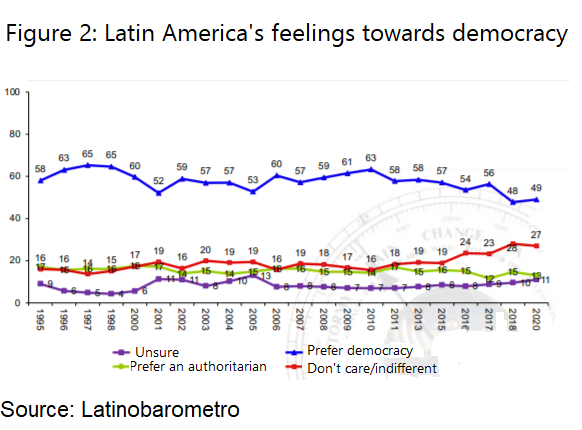Before 1776 almost all nation-states were governed by monarchies. Kings and queens generally had absolute power to do whatever they pleased. But after the American revolution shook the world a new form of governance began to bud: democracy. This new form of governing distributed power more equally and derived power from people, not monarchs. Since then, democracies have sprung up all over the world. It is more common to live in a democracy than not. But this does not mean that democracy is a permanent fixture of modernity. In fact, many argue that it is in retreat. That’s why this week we are discussing Peace, Justice, and Strong Institutions.
Democracy, or the equality of the unequals as Plato put it, distributes power via fair and free elections and checks and balances. No single actor in a democratic government is supposed to wield unilateral power. Most democracies have three branches: executive, legislative, and judicial. The two types of governments, parliamentary or presidential, determine how these branches interact. Before the United States, the only civilization that practiced this form of government were the ancient Greeks. This is why democracy and its preservation are so precious: any regression may lead to a vicious cycle where democracy becomes the exception, not the norm.
Is democracy regressing?
Dissatisfaction with democracy seems to be growing across the globe. A third of the United States is either unsure or disagrees with democracy being the best form of government, according to YouGov, an American polling firm (Figure 1). The prospects within other continents aren’t much cheerier.

According to the Economist and Latinobarometro, a Latin-American pollster, support for democracies has dropped 10% since 1995 (Figure 2). And while only 13% say they prefer an authoritarian, a little more than a quarter say they are unsure or indifferent (Latinobarometro 2021). The Pew Research Center, an American Think Tank, conducted a poll of 6 countries within Asia- Australia, India, South Korea, Philippines, Indonesia, and Japan-asking how satisfied respondents were with how their democracy works. A worryingly high median of 29% was dissatisfied with the way their democracy currently operates. Japan, with a GDP of $5 trillion, found 59% of respondents to be dissatisfied.

Richard Haass, the president of the Council on Foreign Relations, has anxiously observed this unraveling of the world order. As he puts it, “If there were a publicly traded stock called ‘World Order Incorporated,’ it would not have crashed, but it would have suffered a correction”. So how can we rebound from this correction?
How can we fix democracy?
Unfortunately, solutions will be neither easy nor painless. Democracy around the world in all its current forms is in need of rejuvenation. But there are many good ways of going about doing so.
Term limits on politicians would be most effective as new ideas will constantly be brought to government. Prerequisites for running for certain offices may be helpful as well. Having a job outside of the government adds tremendously practical experience in managing an economy. And it is long overdue to end partisan drawing of voting blocs. Voting maps should be drawn by unbiased nonpartisan actors. Voters should choose their representatives, and not the other way around.
There are many other ways of giving democracy a much-needed boost. Experiments across the world will help yield these new ideas, and fractured governments must be willing to experiment. The costs are minimal and the benefits immeasurable, but the consequences of ignoring this authoritarian lurk will be irredeemable.
Works Cited
Frankovic, Kathy. “Three in Five Americans Are Dissatisfied with American Democracy.” YouGov, YouGov, 22 June 2021, today.yougov.com/topics/politics/articles-reports/2021/06/22/americans-are-dissatisfied-democracy.
Haass, Richard. A World in Disarray: American Foreign Policy and the Crisis of the Old Order ; with a New Afterword. Penguin Books, 2018.
“Latin American Democracy Is in Poor but Surprisingly Stable Health.” The Economist, 9 Oct. 2021.


